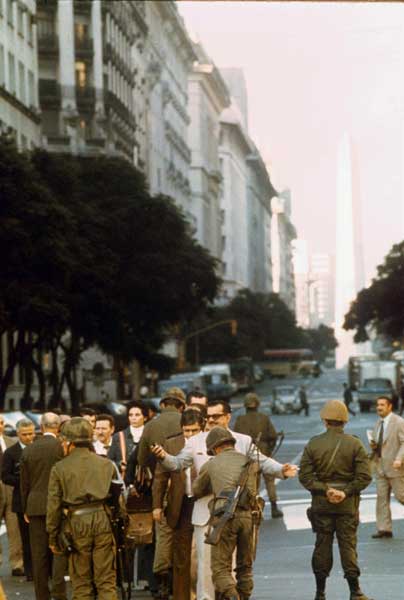Kamchatka, By Marcelo Figueras, trans. Frank Wynne

Your support helps us to tell the story
From reproductive rights to climate change to Big Tech, The Independent is on the ground when the story is developing. Whether it's investigating the financials of Elon Musk's pro-Trump PAC or producing our latest documentary, 'The A Word', which shines a light on the American women fighting for reproductive rights, we know how important it is to parse out the facts from the messaging.
At such a critical moment in US history, we need reporters on the ground. Your donation allows us to keep sending journalists to speak to both sides of the story.
The Independent is trusted by Americans across the entire political spectrum. And unlike many other quality news outlets, we choose not to lock Americans out of our reporting and analysis with paywalls. We believe quality journalism should be available to everyone, paid for by those who can afford it.
Your support makes all the difference.Argentina, 1976. It is a terrifying time for all with left-wing leanings and thousands disappear, many the victims of extra-judicial executions. A young boy is taken out of school and his family flee to a safe house in the secluded hills outside Buenos Aires. They adopt new identities and the boy names himself Harry after his hero Houdini.
In this brilliant coming-of-age novel, Marcelo Figueras does not offer a conventional portrait of Argentina's brutal past. Instead, he focuses on the personal rather than the political, from the perspective of a ten-year-old boy. Harry and his younger brother, nicknamed "the Midget'", are at first indignant at being removed so abruptly from their normal routine and forced to abandon their home, schoolfriends, favourite toys and magazines. They are equally horrified when they have to undertake a crash course in Catholicism so that their secular parents can send them to the local Catholic school.
Gradually, a sense of normality resumes. In the quinta in which they are staying, Harry discovers a book about Houdini and decides to train to become an escape artist. He continues to read his Superman comics, watch his usual television programmes, and play his favourite board game, Risk.
He also enjoys a new pastime rescuing kamikaze toads from drowning in the old swimming pool. Even when their lives are further disrupted by the unexplained arrival of 18-year-old Lucas, Harry is quickly won over by the teenager's athleticism and knot-tying skills.
But the noose is tightening around his parents' necks. Harry's lawyer father can only work underground defending political prisoners and his mother is fired from her job at the university. Eventually, the family are forced to separate for their own safety.
The Kamchatka Peninsula is situated in the far east of Russia: one of the many territories a player tries to conquer in Risk. It is the last word whispered to Harry as he parts from his parents. Only later does he understand the significance designated by his father: When your country is being torn apart, Kamchatka is a place "far from everything, unreachable", a refuge where you gather strength, "to survive the dark times".
Interweaving musings from Harry's childhood with reflections from his older self, Figueras covers a variety of subjects, from the life-changing to the banal, gradually drawing them together. By the end, we realise the hardest lesson Harry has learned is how to survive horror and bear loss: "Love one another madly," he tells us, "the people you know, but more importantly the people who need love, because love is the only thing that is real, it is the light, everything else is darkness".
Join our commenting forum
Join thought-provoking conversations, follow other Independent readers and see their replies
Comments